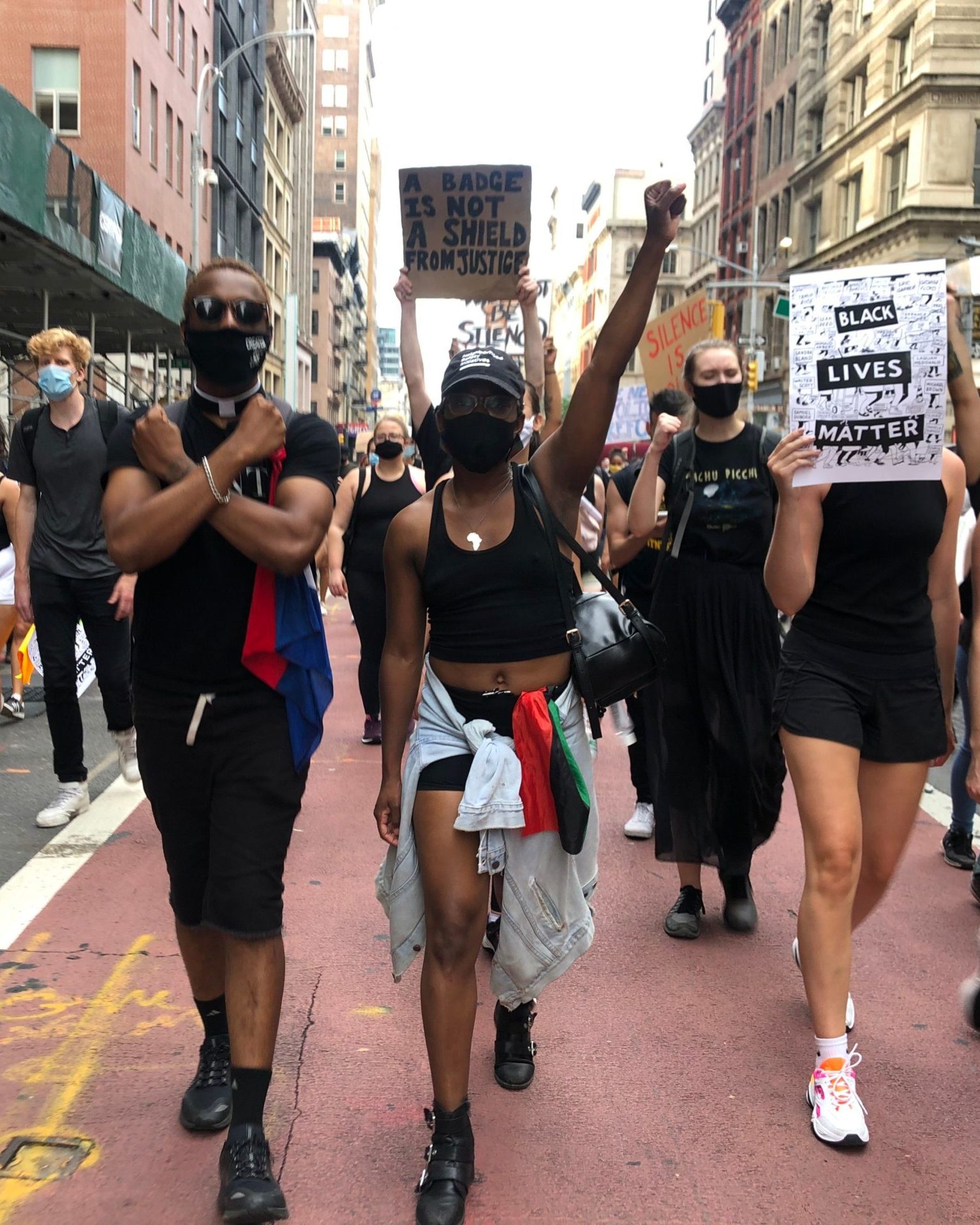 Union has launched the Master of Arts in Social Justice (MASJ). This online 36-credit master’s degree can be completed in as little as two years. Building upon our 186-year legacy of social justice and working with Union’s dynamic faculty, the MASJ empowers students in the program to reimagine the work of justice.
Union has launched the Master of Arts in Social Justice (MASJ). This online 36-credit master’s degree can be completed in as little as two years. Building upon our 186-year legacy of social justice and working with Union’s dynamic faculty, the MASJ empowers students in the program to reimagine the work of justice.
Throughout history, religion has been a driving force for social justice. Gaining an understanding of the religious underpinnings of social justice is critical to advancing its causes and to collaborating effectively with faith-based people, partners and organizations active in the social justice arena.
Students in the program will be equipped to think critically, intersectionally, and creatively about human and planetary flourishing and the ongoing pursuit of a more just society and equitable world. The program emphasizes social justice’s religious, spiritual, and theological roots. In keeping with Union’s unique approach to theological education, it underlines the importance of interreligious engagement with diverse religious traditions.
Review the Application Procedures and Deadlines before you apply. Have questions? Review the MASJ Frequently Asked Questions page here.
Apply Now Request More Information
Students Will Learn To:
- Build theological, theoretical, historical, ethical, critical, practical and contextually accountable foundations for the work of pursuing a more just and equitable world
- Integrate knowledge and critical awareness of existing power dynamics and structures in terms of gender, sexuality, race, class, and identities targeted for oppression, and how they shape, and are shaped by, religion, spirituality, and theology
- Effectively and constructively engage the world’s serious issues such as racial and sexual/gender injustice, mass incarceration, and the climate crisis, in ways informed by deep theological, historical, and critical study
Social Justice at Union:
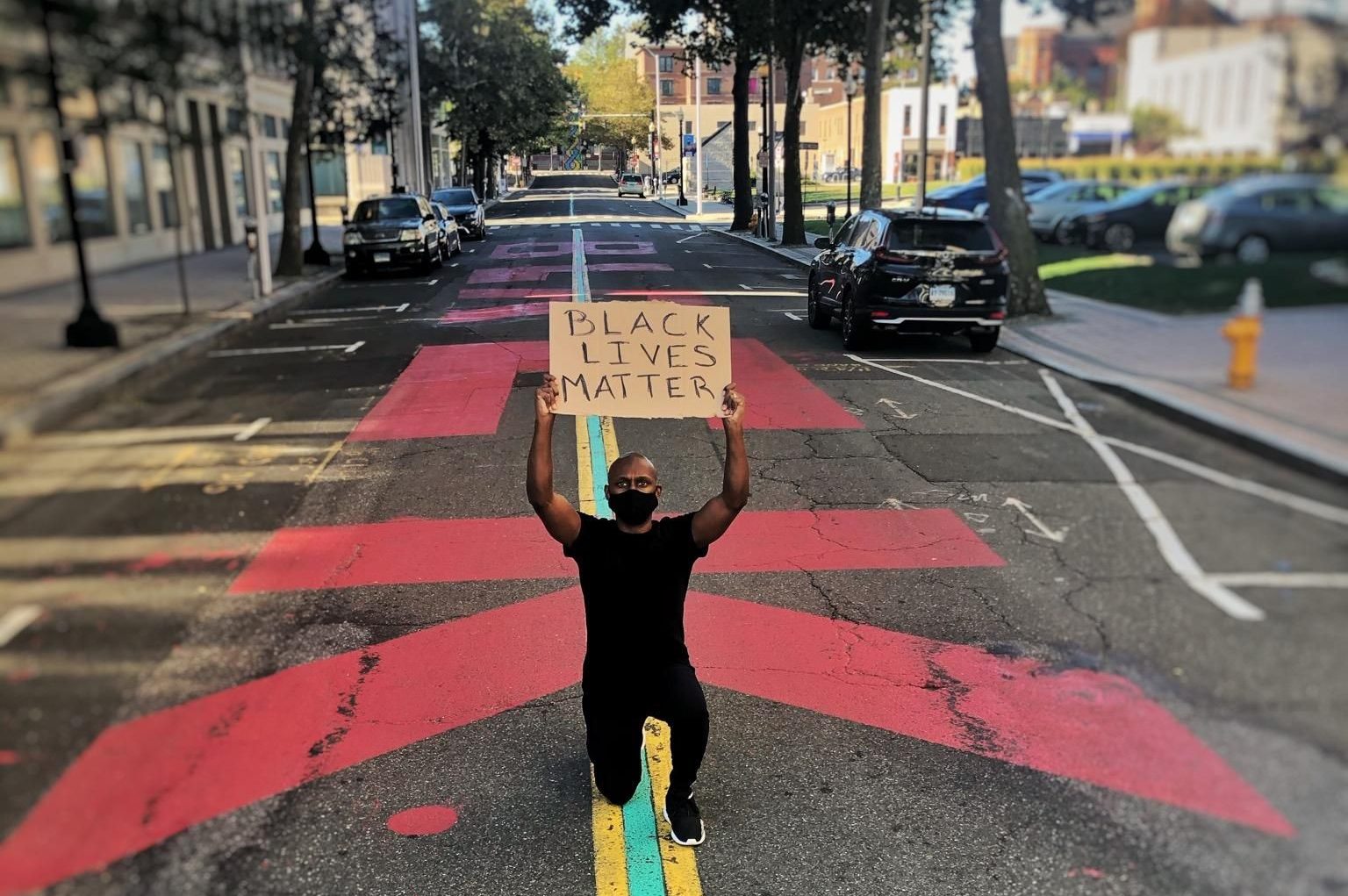 Union is a unique and exceptional place to pursue a graduate degree in social justice. It was established in 1836 as a special type of educational institution; one intentionally designed in an urban context so that academic excellence and personal faith might respond to the needs of the community. Over its nearly 200 year history, Union faculty have been leading scholars and public intellectuals exploring the intersections of race, gender, sexuality, ethnicity, and theology as well as critical issues facing our society and planet like the climate crisis, poverty, and criminal justice. Union students, coming from a diverse array of faith traditions and identity backgrounds, have been active in a variety of social causes and engaged with ethical issues through student caucuses and other initiatives.
Union is a unique and exceptional place to pursue a graduate degree in social justice. It was established in 1836 as a special type of educational institution; one intentionally designed in an urban context so that academic excellence and personal faith might respond to the needs of the community. Over its nearly 200 year history, Union faculty have been leading scholars and public intellectuals exploring the intersections of race, gender, sexuality, ethnicity, and theology as well as critical issues facing our society and planet like the climate crisis, poverty, and criminal justice. Union students, coming from a diverse array of faith traditions and identity backgrounds, have been active in a variety of social causes and engaged with ethical issues through student caucuses and other initiatives.
Union hosts a wide variety of social justice programming, including Just Conversations with Kelly Brown Douglas and online and in-person webinars, lectures, and special events throughout the year.
Union is the home of several centers focused on social justice issues:
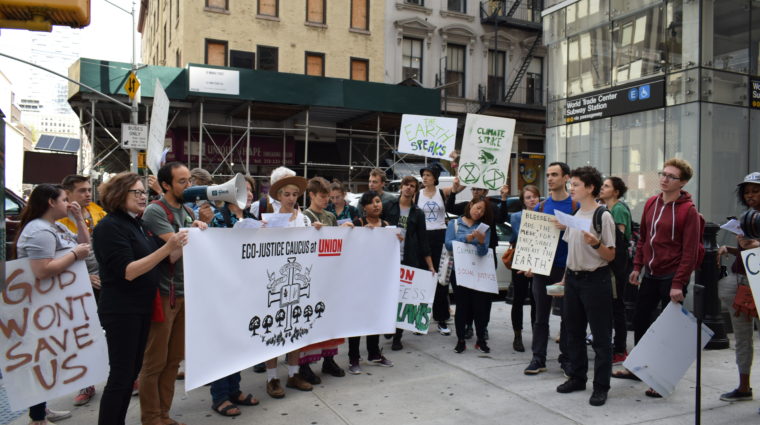
Center for Earth Ethics
The Center for Earth Ethics envisions a world where value is measured according to the sustained well-being of all people and our planet. We work to cultivate the public consciousness needed to make changes in policy and culture that will establish a new value system that is based on this vision of the world.
Learn More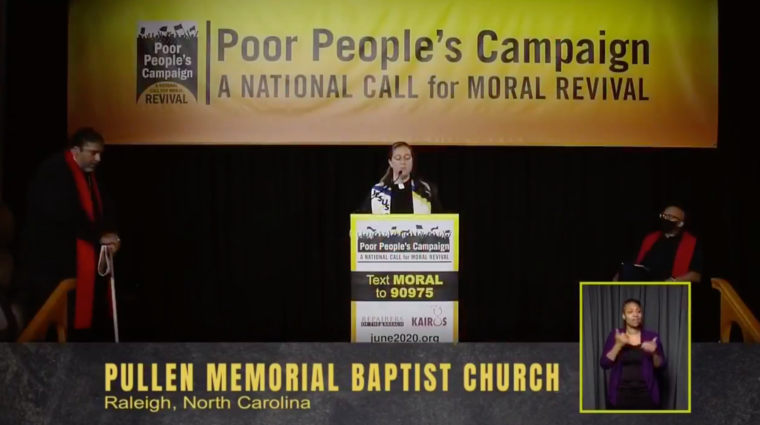
Kairos Center for Religions, Rights and Social Justice
Kairos Center for Religions, Rights and Social Justice is a national organization committed to building a movement to end poverty, led by the poor. Kairos and its many leaders are responsible for: the Poor People’s Campaign, Policy, Communications, Arts and Culture, and Religions.
Learn More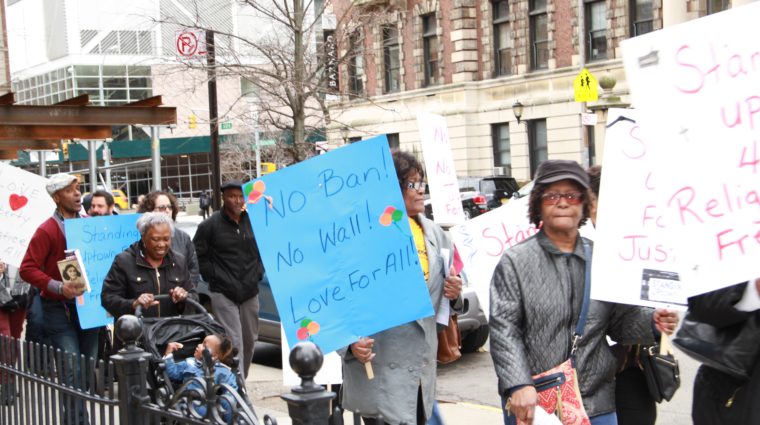
Center for Community Engagement and Social Justice
Center for Community Engagement and Social Justice is creating an environment where community activism and engagement of pressing social justice issues is integrated into the life of Union and the local community. The Center also leads Union's anti-racism work.
Learn MoreA Unique Curriculum Designed To Advance Social Justice
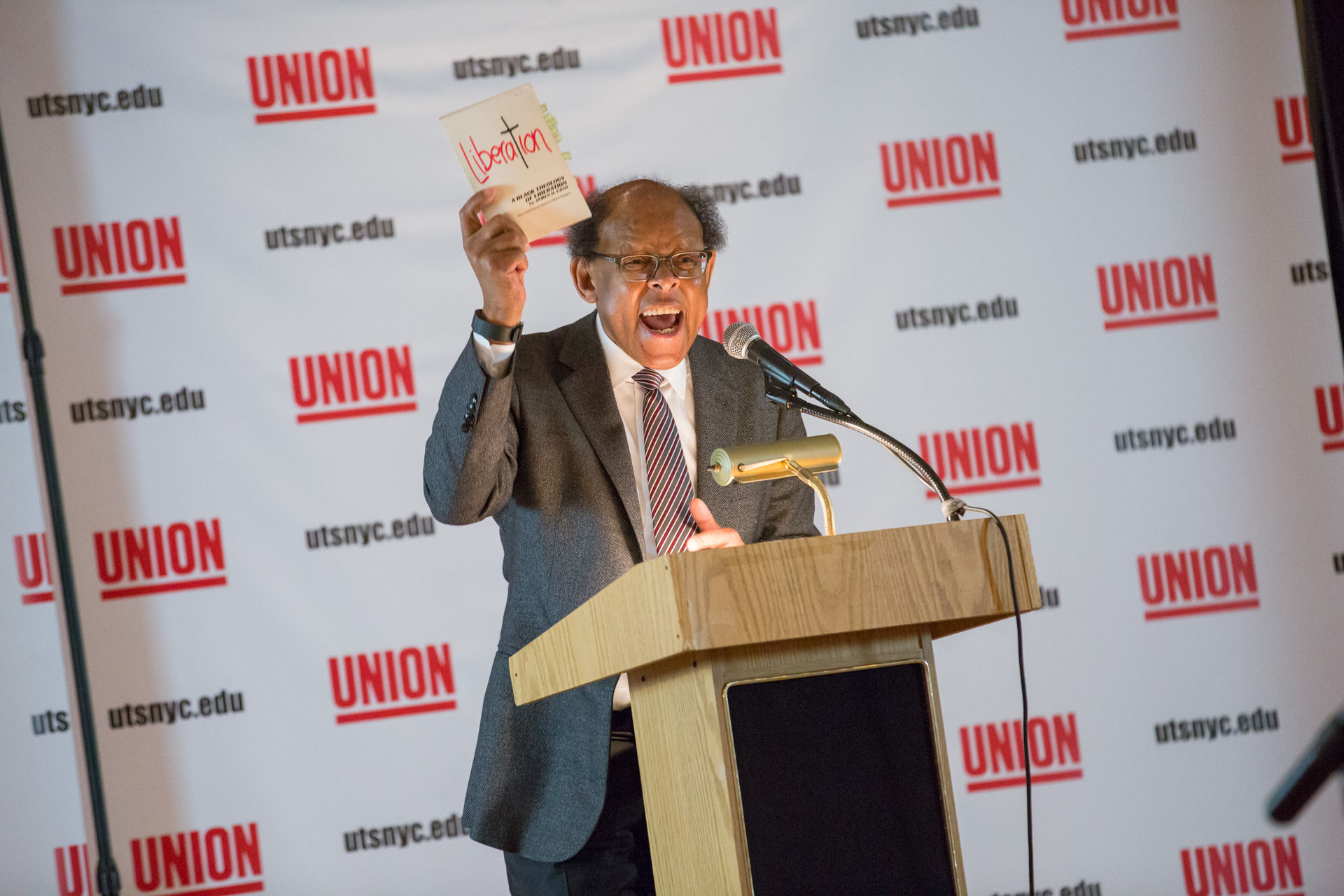 The curriculum is specifically designed to provide opportunities for students to pursue their intellectual and/or professional interests and take full advantage of the breadth and depth of the Union curriculum and the strength of the Union faculty. In addition to social justice colloquia at the beginning and end of the program (the only required courses in the program), the MASJ includes distributional requirements in the religious, spiritual, and theological foundations of social justice and interreligious engagement along with courses in racial and ethnic justice, ecojustice, and gender and sexuality justice. Beyond that, students build their program of study with a faculty advisor, taking additional coursework in the distributional areas of the degree and other courses taken by students in Union’s other graduate programs.
The curriculum is specifically designed to provide opportunities for students to pursue their intellectual and/or professional interests and take full advantage of the breadth and depth of the Union curriculum and the strength of the Union faculty. In addition to social justice colloquia at the beginning and end of the program (the only required courses in the program), the MASJ includes distributional requirements in the religious, spiritual, and theological foundations of social justice and interreligious engagement along with courses in racial and ethnic justice, ecojustice, and gender and sexuality justice. Beyond that, students build their program of study with a faculty advisor, taking additional coursework in the distributional areas of the degree and other courses taken by students in Union’s other graduate programs.
Course offerings at Union, both on-campus and online, rotate and change based on faculty research, emerging topics, and critical issues in theology and social justice. The MASJ has no required courses (other than Colloquia 1 and 2), so students will be able to complete degree requirements through the diverse array of courses offered. This includes up to three Supplemental Unit (SU) courses, which are designed to promote integrative and applied learning as well provide students with opportunities to dig deeply into important social justice topics and build professional skills.
A Program Structured To Meet The Needs Of Part-Time Students
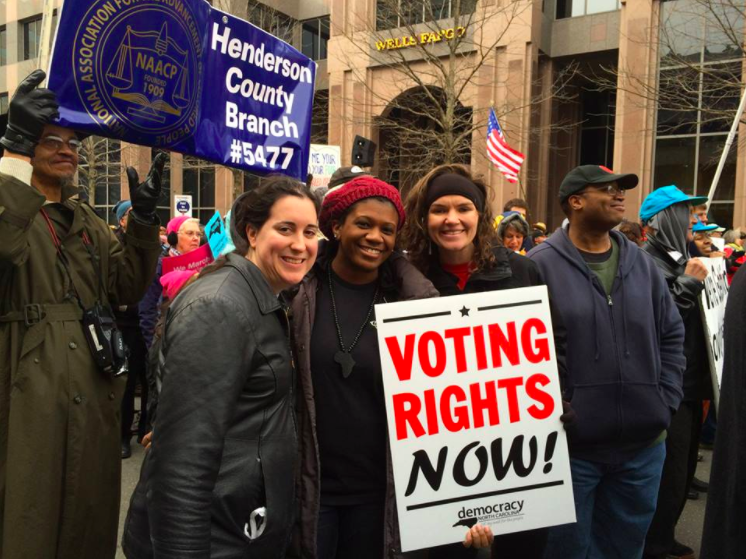 All elements of the program have been designed to make it possible for working professionals and others seeking part-time study to be able to pursue a social justice-focused degree at Union. Coursework towards the degree can be completed fully online without any required on-campus attendance.
All elements of the program have been designed to make it possible for working professionals and others seeking part-time study to be able to pursue a social justice-focused degree at Union. Coursework towards the degree can be completed fully online without any required on-campus attendance.
Nearly all classes are scheduled on weeknight evenings (generally Monday and Thursday) beginning at 6pm and 8pm EST, with additional options to enroll in courses that meet on weekend days or over intensive, extended weekends. The program combines flexibility and predictability, both of which are important to part-time students who seek to accommodate personal and professional commitments.
A Learning Experience With World-Class Faculty
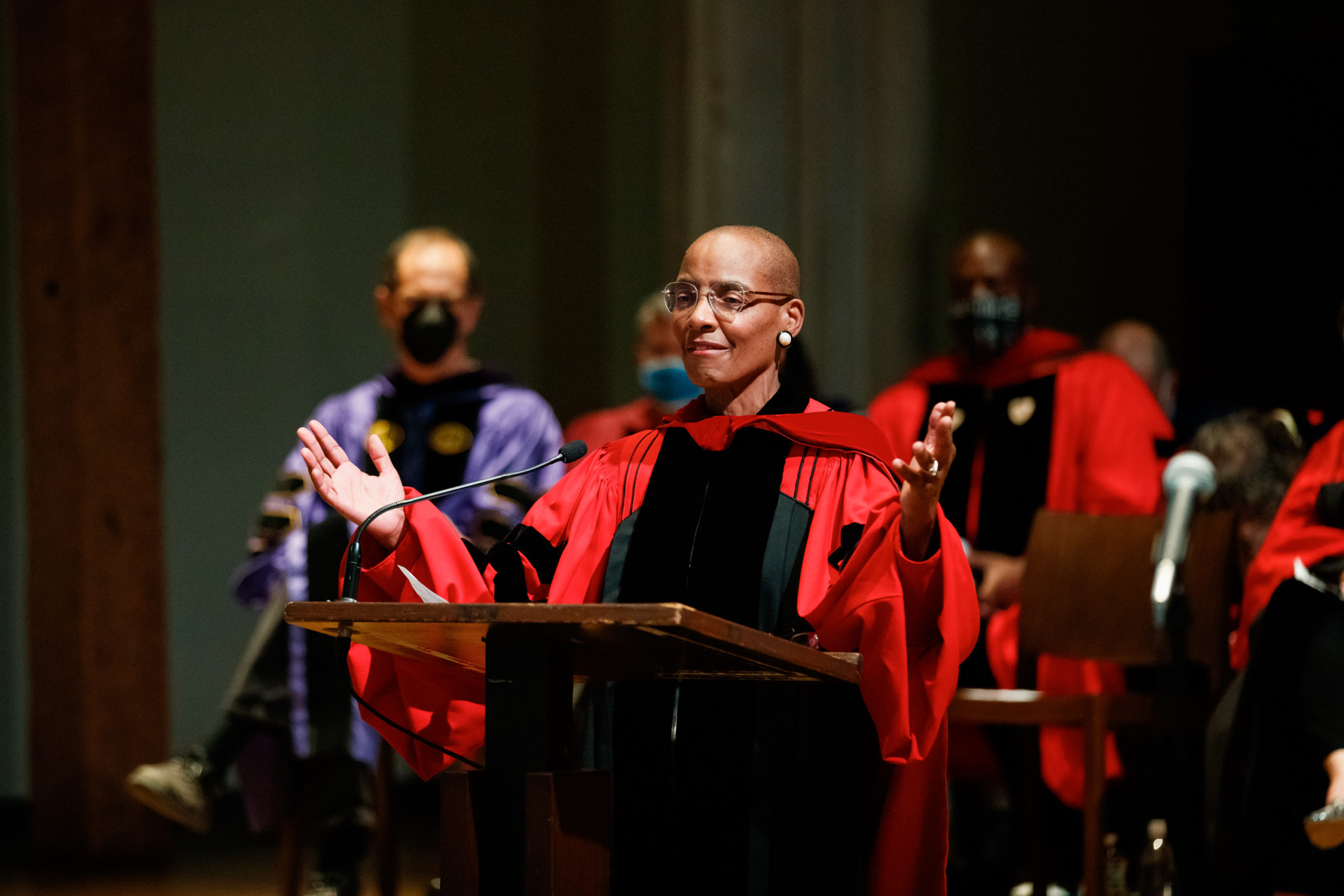 Coursework in the program will be taught by the same diverse Union faculty that is known around the world for its rigorous and groundbreaking scholarship, teaching excellence, and commitment to religious and spiritual communities working to advance inter-religious engagement and social justice. Courses in the program will be taught by a combination of full-time research faculty and leading religious scholars and social justice practitioners serving as lecturers and adjunct faculty.
Coursework in the program will be taught by the same diverse Union faculty that is known around the world for its rigorous and groundbreaking scholarship, teaching excellence, and commitment to religious and spiritual communities working to advance inter-religious engagement and social justice. Courses in the program will be taught by a combination of full-time research faculty and leading religious scholars and social justice practitioners serving as lecturers and adjunct faculty.
Online courses are designed for virtual learning, combining the best elements of live class engagement with readings, multimedia resources, and activities that can be completed in a more self-paced format. Union is committed to creating online experiences that best utilize technology–including Zoom, Moodle (our learning management system), and other applications–to promote engagement and learning. Class sizes are small (most fewer than 20 students) to ensure that students and faculty have opportunities for robust engagement and community-building. For those students requiring technical support, Union’s IT department is available to respond via email or arrange for a 1:1 appointment. Additionally, Union has a Writing Center that provides highly customized support for students at all stages of the writing process and degree progress.
Students have full access to the Burke Library, one of the largest theological libraries in North America, with over 700,000 items and extensive special collections, and the rest of Columbia University Libraries. Many of the resources of Burke Library and Columbia University Libraries are available online.
An Engaging And Supportive Community
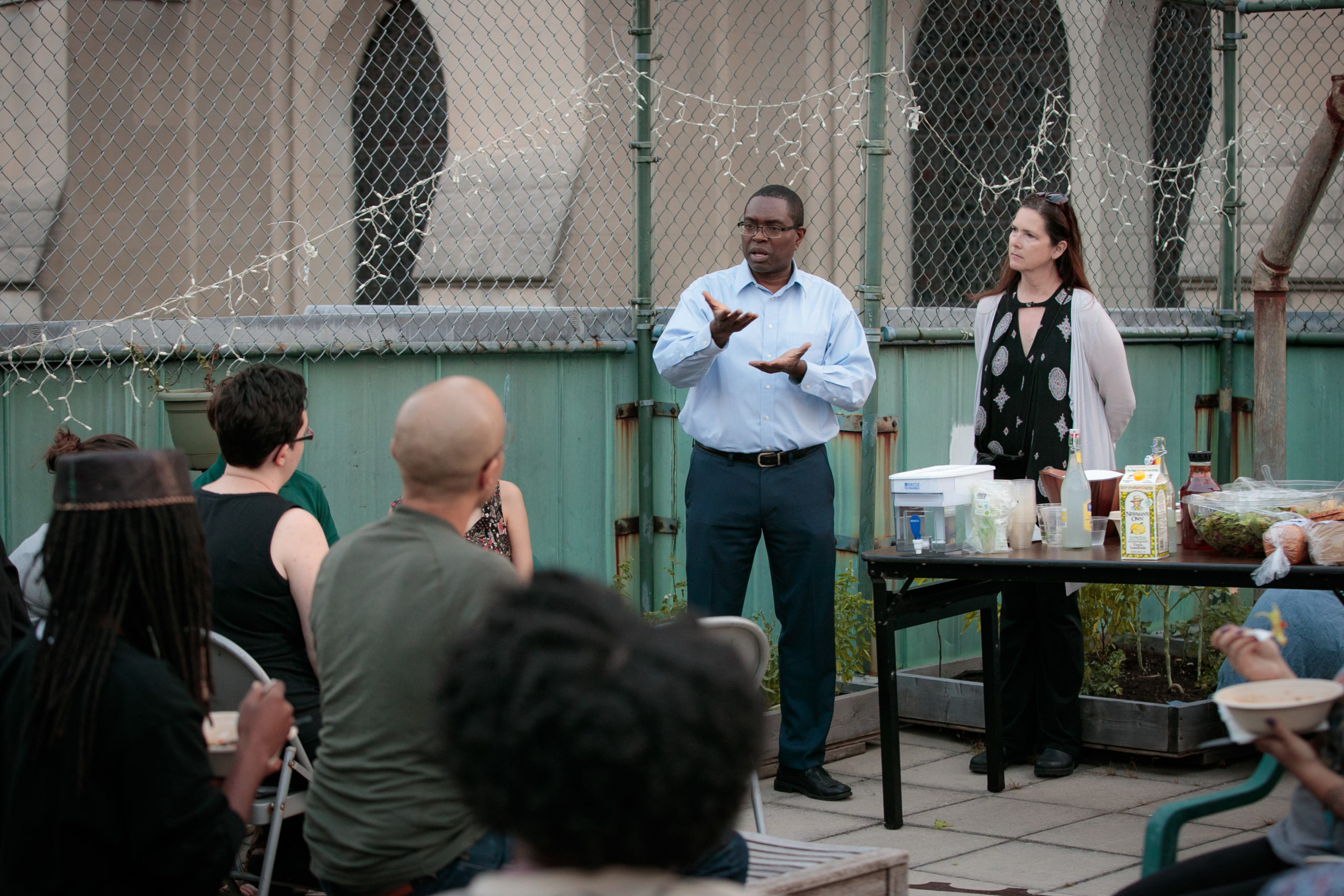 Union is committed to creating an environment where students, both those on our New York City campus and those attending courses online, will thrive as they become the leaders on the cutting edge of faith and justice. We offer an unmatched lineup of speakers and programming, daily Chapel services, spiritual support, meaningful advising and mentorship, engaging student groups, personalized career and professional development, and many opportunities for leadership at Union. Online students are invited to take full advantage of these opportunities even if they cannot join us in New York City. Many of these experiences are available to virtual participants through Zoom and other platforms, and Union is committed to making online students feel included and engaged despite geographic distance.
Union is committed to creating an environment where students, both those on our New York City campus and those attending courses online, will thrive as they become the leaders on the cutting edge of faith and justice. We offer an unmatched lineup of speakers and programming, daily Chapel services, spiritual support, meaningful advising and mentorship, engaging student groups, personalized career and professional development, and many opportunities for leadership at Union. Online students are invited to take full advantage of these opportunities even if they cannot join us in New York City. Many of these experiences are available to virtual participants through Zoom and other platforms, and Union is committed to making online students feel included and engaged despite geographic distance.
If students are ever in the New York City area or able to plan a visit, online students are always welcome on campus for in-person events, intensive courses, and tours of our Morningside Heights home. Students who live in the area are also able enroll in on-campus courses as their schedule permits.
An Opportunity For Professional Growth And Development
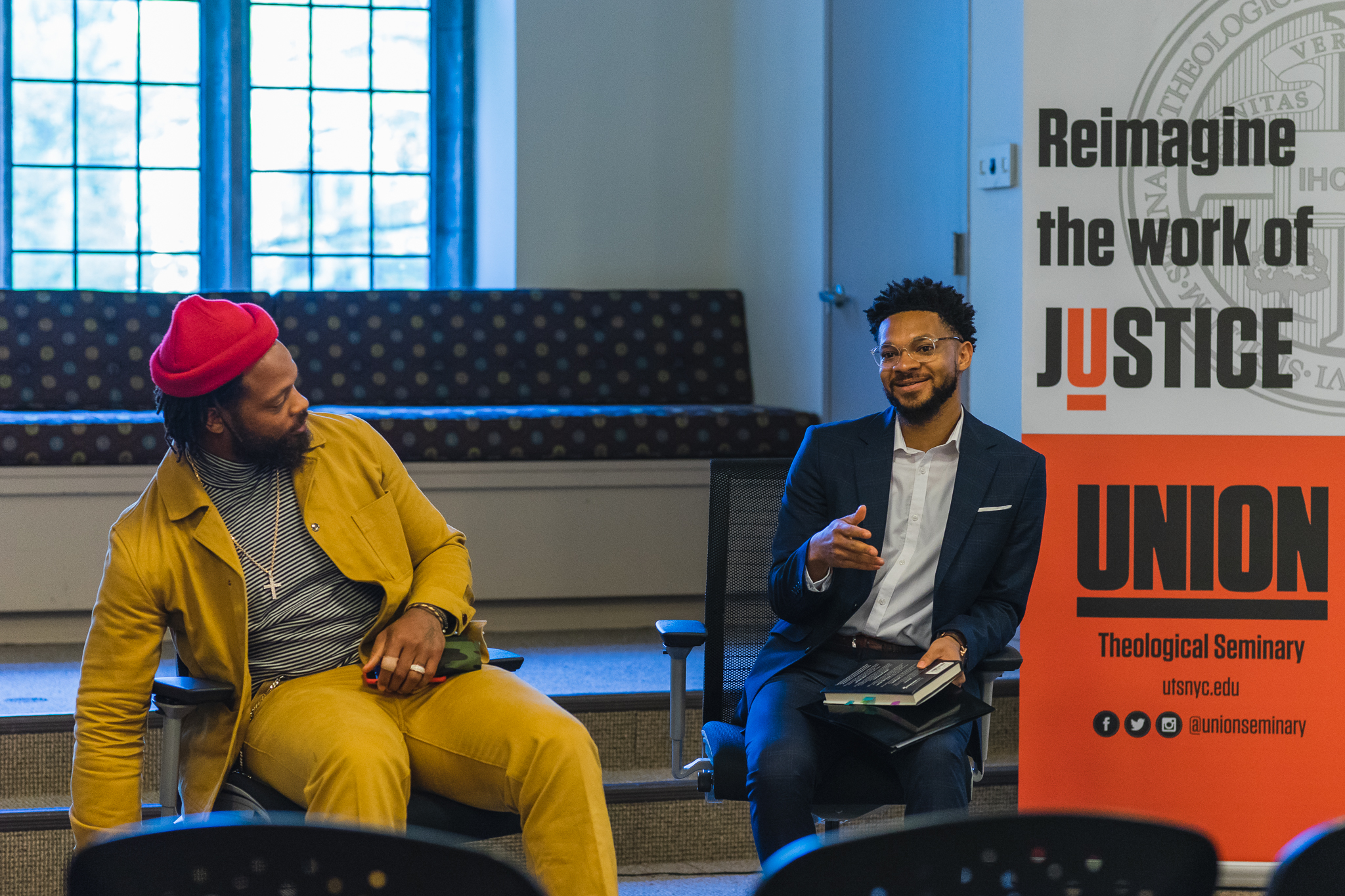 The Union seminary experience has always been designed to open up a range of possible career paths for our students. The paths emerge out of the sense of call each student brings, each student’s particular gifts, talents, and prior experience, and the unique experience that Union provides to discern which path to follow.
The Union seminary experience has always been designed to open up a range of possible career paths for our students. The paths emerge out of the sense of call each student brings, each student’s particular gifts, talents, and prior experience, and the unique experience that Union provides to discern which path to follow.
In addition to gaining a deep understanding of issues at the intersection of spirituality, religion, and social justice, graduates of the MASJ program will build highly developed skills in critical and creative thinking, ethical and intersectional analysis, and written communication. They will be well-positioned to move into new roles or expand their roles to include diversity, equity, and inclusion (DEI) promotion, leadership for social impact, and social justice advocacy as well as many of the career pathways common for graduates of other Union programs. In addition to personalized career support services, Union maintains a job finder site for current students and alumni/ae, and its highly engaged alumni/ae community, working in a wide variety of social justice-focused areas, is a valuable resource for current students and graduates.
The MASJ Program of Study
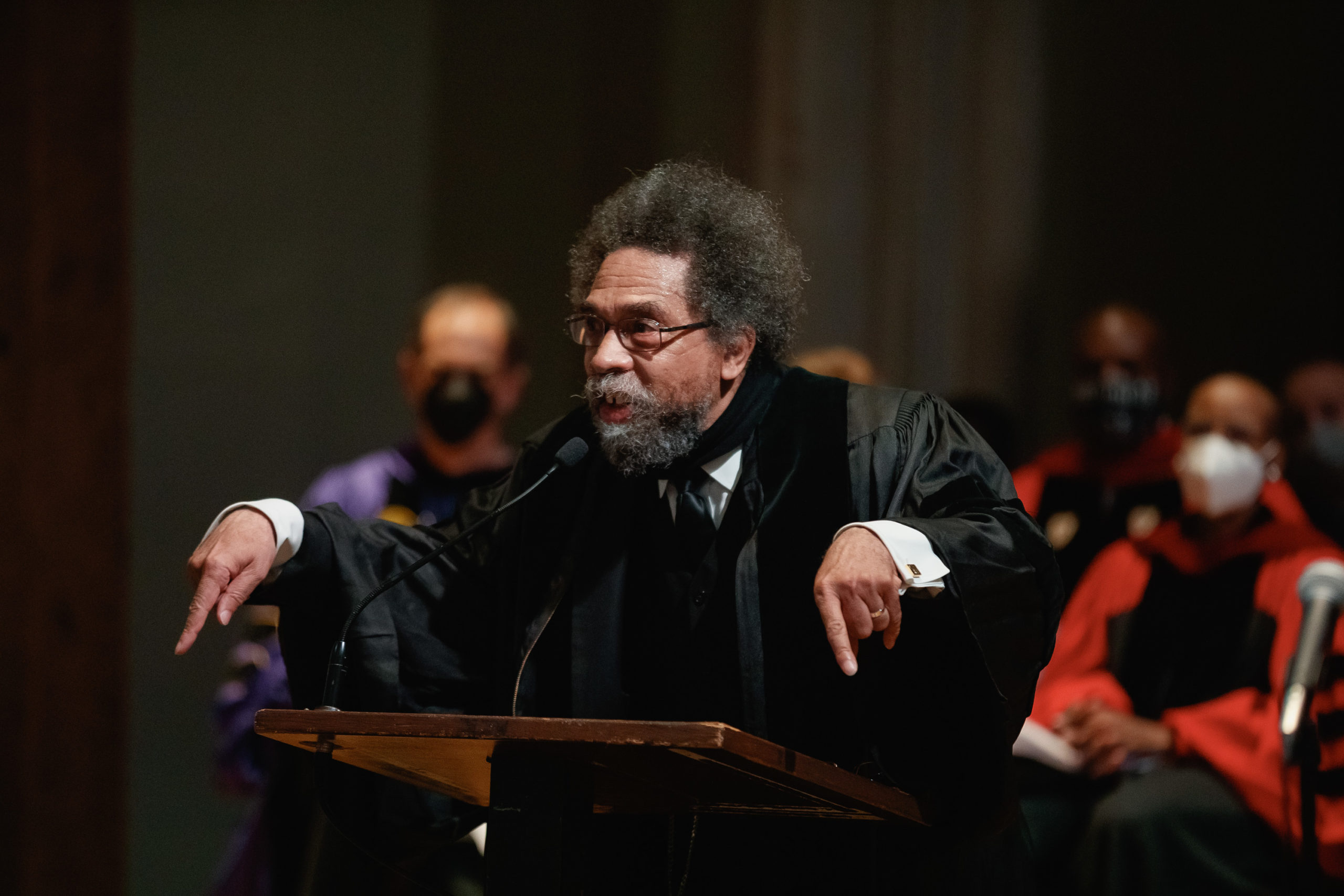 The MASJ can be completed in as little as 21 months, but students may choose to go at a slower pace, taking up to 36 months to complete the program (or anything in between). The design of the program makes it possible for a student to go at a pace that best fits their needs, interests, and realities. A total of 36 credits are required. Coursework is available in fall, January, spring, and summer terms. Students looking to graduate in under two years will, generally, complete 2 courses each fall and spring term and 1 course each summer and January term.
The MASJ can be completed in as little as 21 months, but students may choose to go at a slower pace, taking up to 36 months to complete the program (or anything in between). The design of the program makes it possible for a student to go at a pace that best fits their needs, interests, and realities. A total of 36 credits are required. Coursework is available in fall, January, spring, and summer terms. Students looking to graduate in under two years will, generally, complete 2 courses each fall and spring term and 1 course each summer and January term.
- Introductory 1-credit colloquium (first term)
- Three credits in each of the following five required areas:
- Three credits in a foundations of social justice course
- Three credits in Ecojustice
- Three credits in Gender & Sexuality Justice
- Three credits in Racial & Ethnic Justice
- Three credits in Interreligious Engagement
- An additional three credits from any of the required areas
- Fifteen elective credits in courses relevant to the student’s goals
- Can be additional courses from distributional areas or other courses from across the Union curriculum
- Up to three elective credits can be in supplemental (“SU”) coursework – intensive courses that focus on special topics that go beyond the traditional Union curriculum
- Concluding 2-credit Colloquium (final term), which includes the completion of a final applied integrative paper
PLEASE NOTE:
REQUIRED Introductory Colloquium for Students Entering Spring 2023
DATES & TIMES: 1/27 (4-9pm EST) and 1/28 (10am-6pm EST)
Social Justice Coursework Areas
Learn more about courses offered in the 2022 - 23 academic year:
Foundations
Courses in the Foundations of social justice area generally cover a variety of historical and contemporary frameworks that a range of philosophical and religious traditions continue to use in working toward a more just and equitable world. Some courses focus more heavily on methods, categories, and concepts used in social-ethical analysis and moral decision-making. Other courses primarily emphasize particular social movements, justice issues, and or influential protest traditions.
All courses in this area will help students better understand what social justice is, why it matters, and how people of all faiths can join in its pursuit.
Course offerings in this area for Academic Year 2023-2024 (subject to change; vary each year):
Liturgies From Below: Prayers In Defiance Of Empire (Professor Cláudio Carvalhaes)
Preaching and Protest (Professor Timothy Adkins-Jones)
Marxism, Critical Theories, New Materialism (Professor Jan Rehmann)
Moral Traditions and Social Ethics (Professor Isaac Sharp)
Moral Leadership in Times of Crisis: Theory and Practice for Organizing a Moral Movement (Professors Liz Theoharis and Jessica C. Williams)
Revelation: Ecology, Identity, and Power (Professor Amy Meverden)
Eco-Justice
Courses in the Ecojustice area broadly address the pursuit of more ethical relationships with the earth, its various environments and ecosystems, and all of its interconnected inhabitants. Some courses consider a variety of pressing issues of planetary survival—from climate change to environmental destruction—with the help of a diverse set of political, anthropological, philosophical, and indigenous perspectives. Other courses explore what a range of spiritual traditions, religious texts, and disciplinary approaches can teach us about non-human life and the natural world.
Every course in this area will help students develop a deeper understanding of the pivotal importance of environmental justice for the future of life on earth–and how faith, spirituality, and religion are a key part of the struggle.
Course offerings in this area for Academic Year 2023-2024 (subject to change; vary each year):
Indigenous Voices with Ecology, Colonization, and Spirituality (Professors Karenna Gore, Tiokasin Ghosthorse, and Betty Lyons)
Learning From the Earth: Interdisciplinary Resources for Eco‐Rituals and Earth Liturgies (Professor Cláudio Carvalhaes)
Revelation: Ecology, Identity, and Power (Professor Amy Meverden)
The Bible and Nature (Professor Aliou C. Niang)
Theology and the Natural World: Enchantment and Ecotheology (Professor John Thatamanil)
Gender & Sexuality Justice
Courses in the Gender & Sexuality Justice area generally focus on navigating the complex relationships between societal standards, cultural norms, and religious understandings of sex and gender in more ethical ways. Some courses include intersectional analysis of the marginalization of women, women of color, and LGBTQ communities. Other courses emphasize the historical and contemporary contributions of feminist, womanist, and queer philosophical and religious traditions.
Every course in this area will help students develop a more robust understanding of the ongoing struggle for a world in which people of every gender expression and sexual orientation can thrive.
Course offerings in this area for Academic Year 2022-2023 (subject to change; vary each year):
Galatians: Queering Gender and Other Binaries (Professor Brigitte Kahl)
Genders and Sexualities of Early Christians (Professor Julia Kelto Lillis)
Living Practice in Gender and Sexuality Justice (Professor Kathleen Talvacchia)
Power, Gender, and Sexuality (Professor Edgard Francisco Danielsen)
The Dharma of James Baldwin and Audre Lorde (Professor Rima Vesely-Flad)
Womanist Theology and the Arts (Professor Andrea C. White)
Racial & Ethnic
Courses in the Racial & Ethnic Justice area broadly emphasize the historical and contemporary lived experiences of Black, indigenous, and minoritized peoples of color in the United States and beyond. Some courses include a focus on one or more of the particular varieties of Black North American or African-based philosophical, religious, or spiritual traditions. Other courses interrogate the historical evolution of ideological, political, and religious understandings of race, racism, and systemic racial and ethnic oppression.
Every course in this area will help students begin developing a more nuanced understanding of race and/or ethnicity and their integral importance in all efforts to transform the structures of society toward justice.
Course offerings in this area for Academic Year 2022-2023 (subject to change; vary each year):
Abolition, Transformative Justice, and Buddhist Social Ethics (Professor Rima Vesely-Flad)
African American Biblical Interpretation (Professor Cheryl Anderson)
Contextual Perspectives on Culture and Race (Professor Samuel Cruz)
Engaging the Powers: A Theo-ethical Framework for Racial Justice and Black Liberation (Professor Charlene Sinclair)
Race, Racialization, and Religion in Historical Process (Professor Carla Roland Guzmán)
The Black Social Gospel, 1940‐Present (Professor Gary Dorrien)
The Dharma of James Baldwin and Audre Lorde (Professor Rima Vesely-Flad)
Womanist Theology and the Arts (Professor Andrea C. White)
Interreligious Engagement
Courses in the Interreligious Engagement area generally address the main questions, concerns, and implications of religious diversity and the task of engaging with people of faith from within and across different religious traditions. Some courses focus on one main tradition– focusing on specific concepts, ideas, schools of thought and/or historical movements that emerged from within individual traditions. Other courses emphasize various aspects of the relationship between particular traditions, including historical and contemporary challenges and ongoing opportunities for cooperation.
Every course in this area will provide students with opportunities to develop tools necessary for navigating the realities of religious diversity and working within and across faith traditions to promote social justice.
Course offerings in this area for Academic Year 2022-2023 (subject to change; vary each year):
Abolition, Transformative Justice, and Buddhist Social Ethics (Professor Rima Vesely-Flad)
Double Belonging (Professor John J. Thatamanil)
Indigenous Voices with Ecology, Colonization, and Spirituality (Professors Karenna Gore, Tiokasin Ghosthorse, and Betty Lyons)
Introduction to Judaism (Professor Benjamin Kamine)
Spiritual Journeys: Implications for the Formation and Education of Adults (Professor Mary Boys)
The Dharma of James Baldwin and Audre Lorde (Professor Rima Vesely-Flad)
Learn more about courses offered in the 2022 - 23 academic year:
Foundations
Courses in the Foundations of social justice area generally cover a variety of historical and contemporary frameworks that a range of philosophical and religious traditions continue to use in working toward a more just and equitable world. Some courses focus more heavily on methods, categories, and concepts used in social-ethical analysis and moral decision-making. Other courses primarily emphasize particular social movements, justice issues, and or influential protest traditions.
All courses in this area will help students better understand what social justice is, why it matters, and how people of all faiths can join in its pursuit.
Course offerings in this area for Academic Year 2023-2024 (subject to change; vary each year):
Liturgies From Below: Prayers In Defiance Of Empire (Professor Cláudio Carvalhaes)
Preaching and Protest (Professor Timothy Adkins-Jones)
Marxism, Critical Theories, New Materialism (Professor Jan Rehmann)
Moral Traditions and Social Ethics (Professor Isaac Sharp)
Moral Leadership in Times of Crisis: Theory and Practice for Organizing a Moral Movement (Professors Liz Theoharis and Jessica C. Williams)
Revelation: Ecology, Identity, and Power (Professor Amy Meverden)
Eco-Justice
Courses in the Ecojustice area broadly address the pursuit of more ethical relationships with the earth, its various environments and ecosystems, and all of its interconnected inhabitants. Some courses consider a variety of pressing issues of planetary survival—from climate change to environmental destruction—with the help of a diverse set of political, anthropological, philosophical, and indigenous perspectives. Other courses explore what a range of spiritual traditions, religious texts, and disciplinary approaches can teach us about non-human life and the natural world.
Every course in this area will help students develop a deeper understanding of the pivotal importance of environmental justice for the future of life on earth–and how faith, spirituality, and religion are a key part of the struggle.
Course offerings in this area for Academic Year 2023-2024 (subject to change; vary each year):
Indigenous Voices with Ecology, Colonization, and Spirituality (Professors Karenna Gore, Tiokasin Ghosthorse, and Betty Lyons)
Learning From the Earth: Interdisciplinary Resources for Eco‐Rituals and Earth Liturgies (Professor Cláudio Carvalhaes)
Revelation: Ecology, Identity, and Power (Professor Amy Meverden)
The Bible and Nature (Professor Aliou C. Niang)
Theology and the Natural World: Enchantment and Ecotheology (Professor John Thatamanil)
Gender & Sexuality Justice
Courses in the Gender & Sexuality Justice area generally focus on navigating the complex relationships between societal standards, cultural norms, and religious understandings of sex and gender in more ethical ways. Some courses include intersectional analysis of the marginalization of women, women of color, and LGBTQ communities. Other courses emphasize the historical and contemporary contributions of feminist, womanist, and queer philosophical and religious traditions.
Every course in this area will help students develop a more robust understanding of the ongoing struggle for a world in which people of every gender expression and sexual orientation can thrive.
Course offerings in this area for Academic Year 2022-2023 (subject to change; vary each year):
Galatians: Queering Gender and Other Binaries (Professor Brigitte Kahl)
Genders and Sexualities of Early Christians (Professor Julia Kelto Lillis)
Living Practice in Gender and Sexuality Justice (Professor Kathleen Talvacchia)
Power, Gender, and Sexuality (Professor Edgard Francisco Danielsen)
The Dharma of James Baldwin and Audre Lorde (Professor Rima Vesely-Flad)
Womanist Theology and the Arts (Professor Andrea C. White)
Racial & Ethnic
Courses in the Racial & Ethnic Justice area broadly emphasize the historical and contemporary lived experiences of Black, indigenous, and minoritized peoples of color in the United States and beyond. Some courses include a focus on one or more of the particular varieties of Black North American or African-based philosophical, religious, or spiritual traditions. Other courses interrogate the historical evolution of ideological, political, and religious understandings of race, racism, and systemic racial and ethnic oppression.
Every course in this area will help students begin developing a more nuanced understanding of race and/or ethnicity and their integral importance in all efforts to transform the structures of society toward justice.
Course offerings in this area for Academic Year 2022-2023 (subject to change; vary each year):
Abolition, Transformative Justice, and Buddhist Social Ethics (Professor Rima Vesely-Flad)
African American Biblical Interpretation (Professor Cheryl Anderson)
Contextual Perspectives on Culture and Race (Professor Samuel Cruz)
Engaging the Powers: A Theo-ethical Framework for Racial Justice and Black Liberation (Professor Charlene Sinclair)
Race, Racialization, and Religion in Historical Process (Professor Carla Roland Guzmán)
The Black Social Gospel, 1940‐Present (Professor Gary Dorrien)
The Dharma of James Baldwin and Audre Lorde (Professor Rima Vesely-Flad)
Womanist Theology and the Arts (Professor Andrea C. White)
Interreligious Engagement
Courses in the Interreligious Engagement area generally address the main questions, concerns, and implications of religious diversity and the task of engaging with people of faith from within and across different religious traditions. Some courses focus on one main tradition– focusing on specific concepts, ideas, schools of thought and/or historical movements that emerged from within individual traditions. Other courses emphasize various aspects of the relationship between particular traditions, including historical and contemporary challenges and ongoing opportunities for cooperation.
Every course in this area will provide students with opportunities to develop tools necessary for navigating the realities of religious diversity and working within and across faith traditions to promote social justice.
Course offerings in this area for Academic Year 2022-2023 (subject to change; vary each year):
Abolition, Transformative Justice, and Buddhist Social Ethics (Professor Rima Vesely-Flad)
Double Belonging (Professor John J. Thatamanil)
Indigenous Voices with Ecology, Colonization, and Spirituality (Professors Karenna Gore, Tiokasin Ghosthorse, and Betty Lyons)
Introduction to Judaism (Professor Benjamin Kamine)
Spiritual Journeys: Implications for the Formation and Education of Adults (Professor Mary Boys)
The Dharma of James Baldwin and Audre Lorde (Professor Rima Vesely-Flad)

